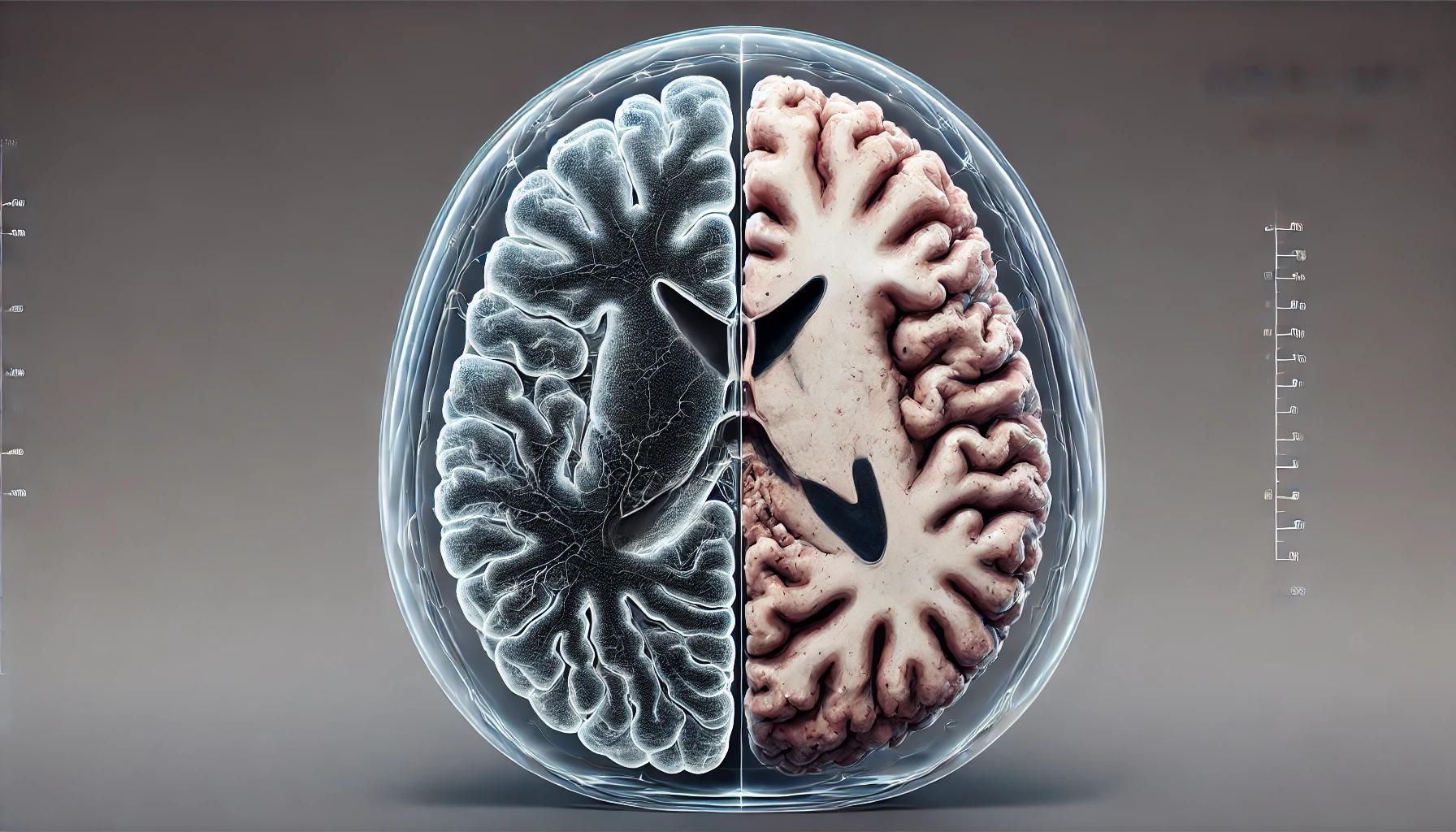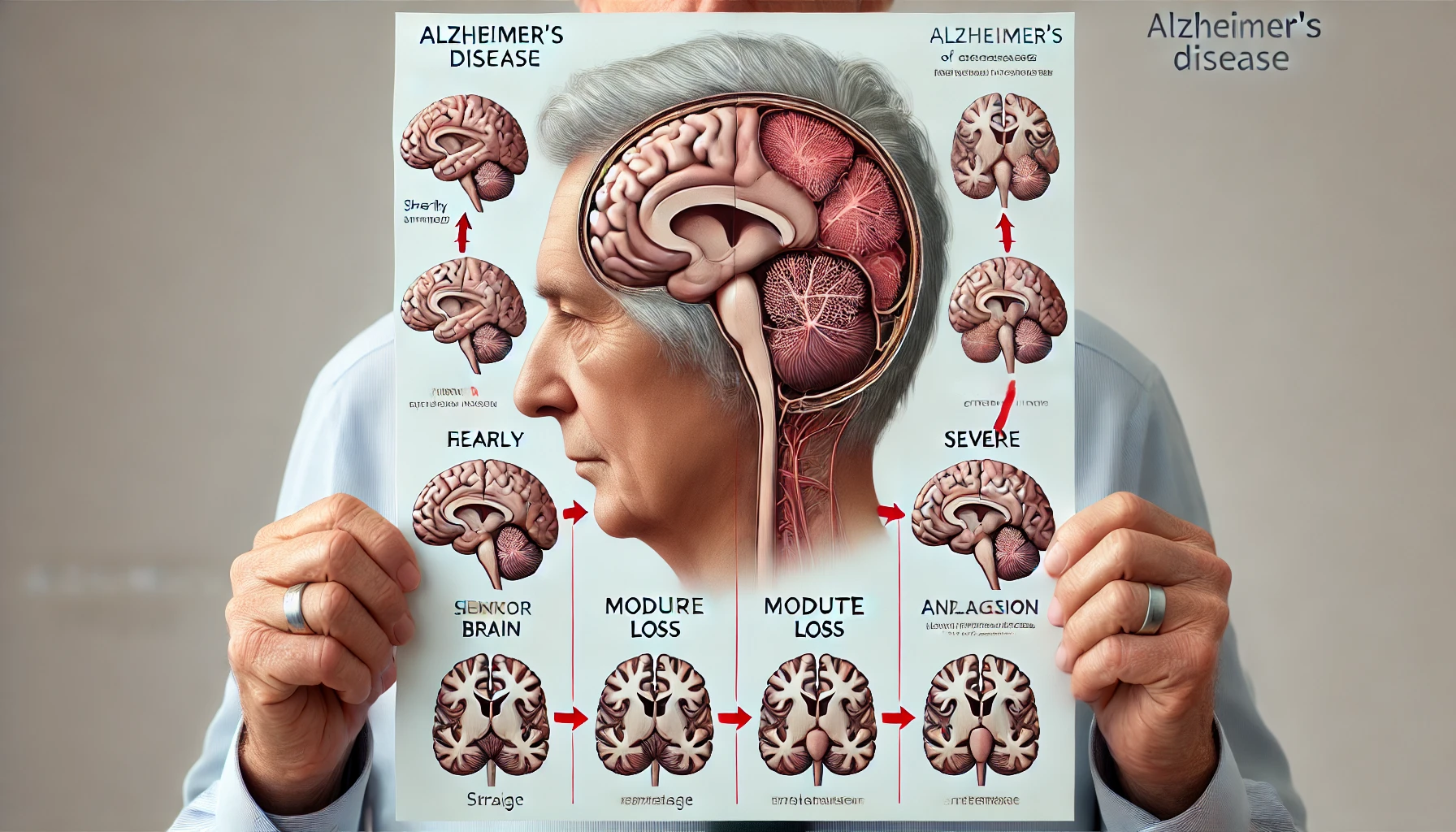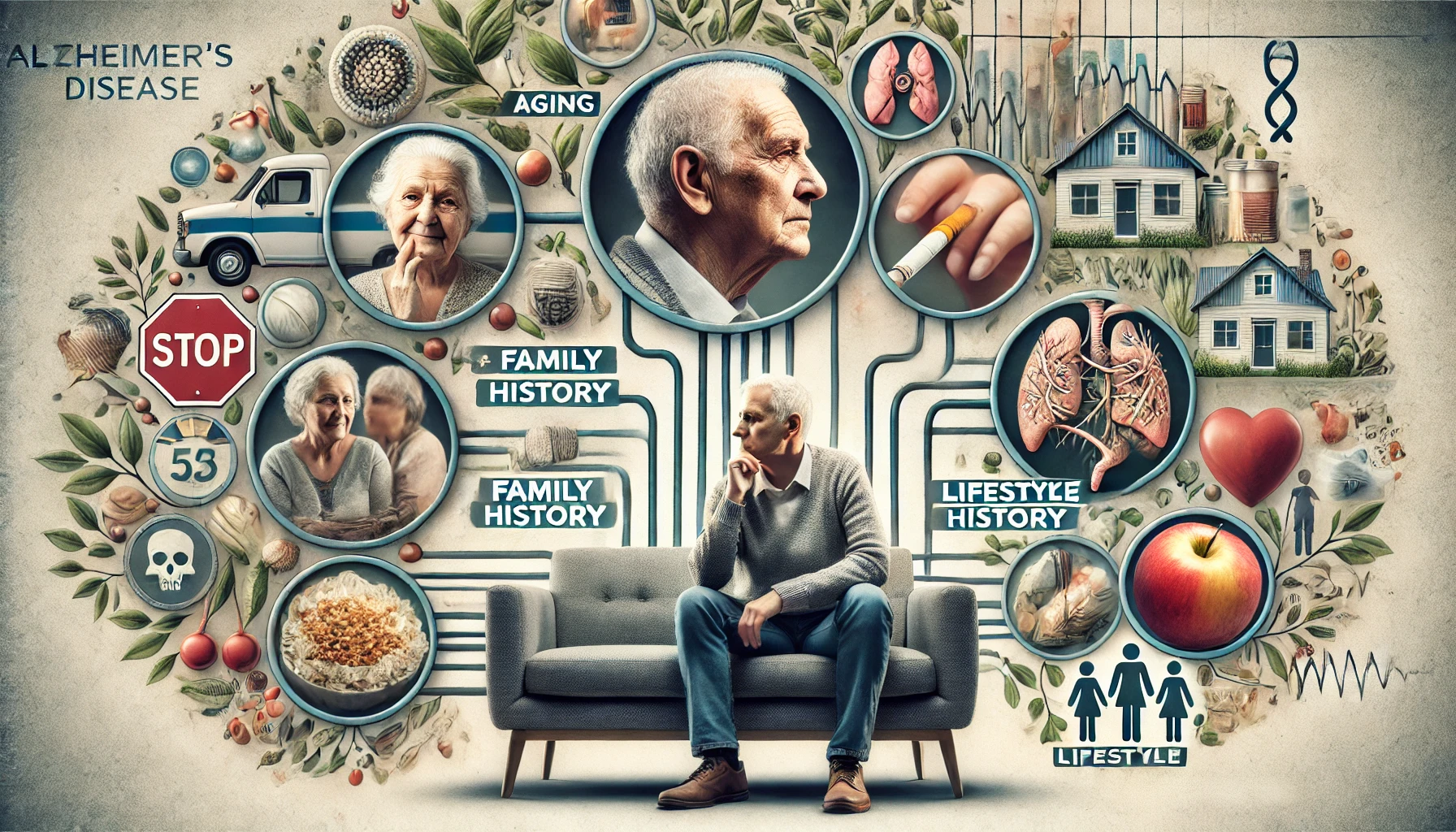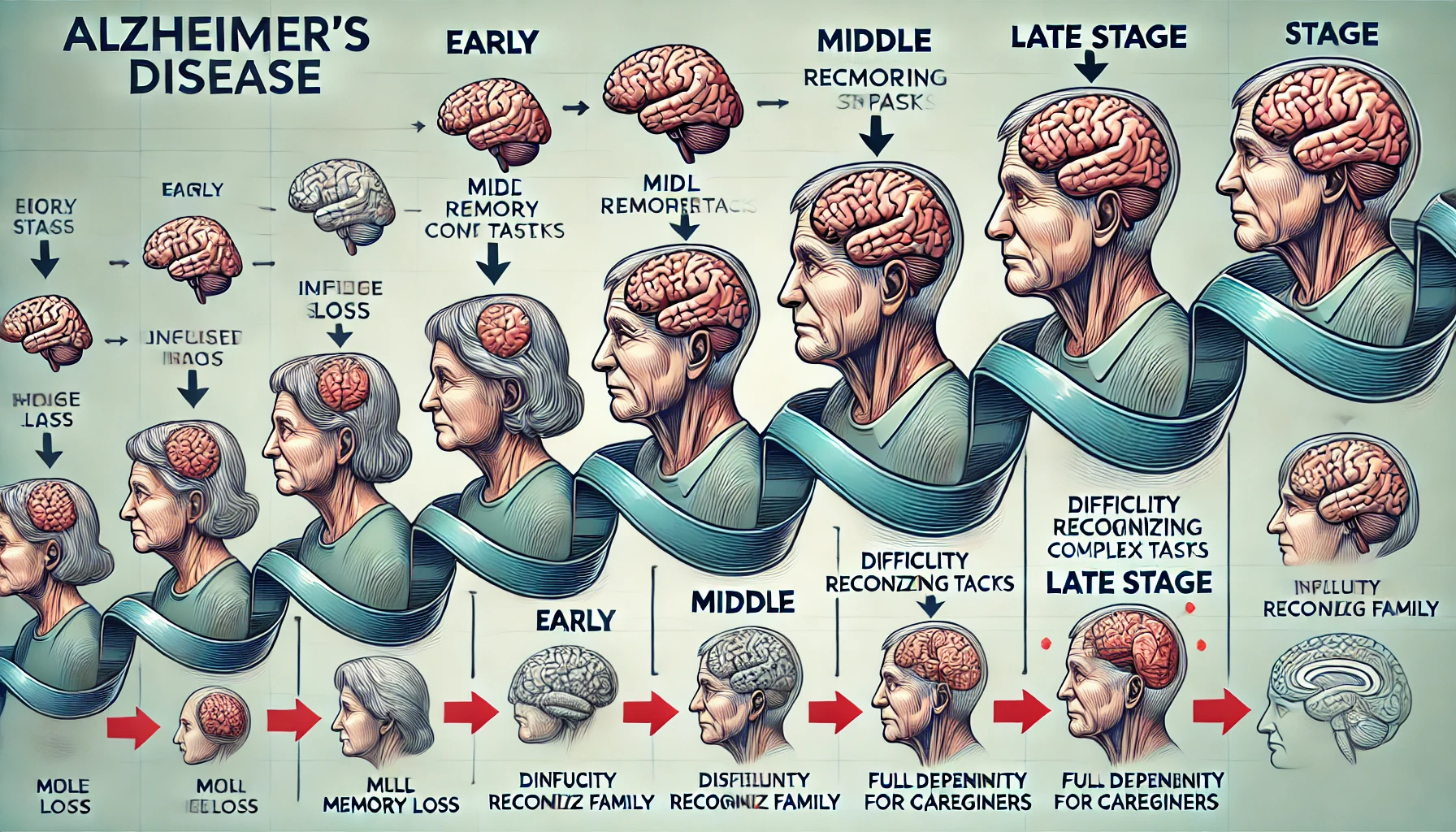Alzheimer’s Disease: Symptoms, Causes, and Care
Dr. Jane Doe
7 Sep 2024 • 10 min read
Introduction to Alzheimer’s Disease
Alzheimer’s disease is a progressive neurological disorder that causes brain cells to degenerate and die. It is the most common cause of dementia, leading to a continuous decline in thinking, behavioral, and social skills. Alzheimer’s disease affects memory, reasoning, language, and eventually the ability to carry out simple tasks. It is a major health issue, particularly in aging populations.

What is Alzheimer’s Disease?
Alzheimer’s disease is a chronic neurodegenerative condition that typically starts slowly and worsens over time. It is the most common form of dementia among older adults, but it is not a normal part of aging. Alzheimer’s disease affects the brain by disrupting communication between brain cells, leading to the loss of function and eventual cell death.

Symptoms of Alzheimer’s Disease
- Memory Loss: Especially recent memories.
- Difficulty in Planning and Problem Solving: Struggling to develop and follow a plan or work with numbers.
- Difficulty Completing Familiar Tasks: Trouble with routine tasks at home or work.
- Confusion with Time or Place: Losing track of dates, seasons, and the passage of time.
- Difficulty Understanding Visual Images and Spatial Relationships: Problems with depth perception and recognizing familiar faces or objects.
- Misplacing Things: Putting things in unusual places and losing the ability to retrace steps.
- Decreased or Poor Judgment: Making poor decisions in money matters or neglecting hygiene.
- Withdrawal from Social Activities: Avoiding social engagements, hobbies, and work projects.
- Changes in Mood and Personality: Increased anxiety, confusion, or depression.

Causes and Risk Factors
The exact cause of Alzheimer’s disease is not fully understood, but it is thought to result from a combination of genetic, environmental, and lifestyle factors. Key contributing factors include:
- Amyloid Plaques: Clumps of beta-amyloid protein fragments that accumulate between neurons.
- Neurofibrillary Tangles: Twisted strands of tau protein inside neurons that disrupt their function.
- Brain Atrophy: Progressive loss of brain cells and shrinking of brain tissue.
- Genetics: Specific genes, such as APOE-e4, increase the risk of developing Alzheimer’s.
- Age: The most significant risk factor, with the majority of cases occurring in people aged 65 and older.
- Family History: A family history of Alzheimer’s increases the risk.
- Genetics: In addition to APOE-e4, other genes may contribute to the risk.
- Head Trauma: Past head injuries may increase the risk.
- Heart Health: Poor cardiovascular health (e.g., high blood pressure, diabetes) is linked to a higher risk of Alzheimer’s.

Diagnosing Alzheimer’s Disease
- Medical History and Physical Exam: A review of symptoms, medical history, and family history of Alzheimer’s or other dementias.
- Cognitive and Neuropsychological Tests: Assess memory, problem-solving, attention, language, and other cognitive abilities.
- MRI and CT Scans: Provide detailed images of the brain to rule out other conditions and detect brain atrophy.
- PET Scans: Can show abnormal levels of amyloid plaques or glucose metabolism in the brain.
- Blood Tests: To rule out other potential causes of memory loss and confusion, such as thyroid disorders or vitamin deficiencies.

Stages of Alzheimer’s Disease
- Early Stage (Mild): Memory lapses, difficulty with complex tasks, subtle mood changes.
- Middle Stage (Moderate): Increased memory loss, confusion, difficulty recognizing friends and family, behavioral symptoms.
- Late Stage (Severe): Loss of communication, need for full-time care, personality changes, loss of physical abilities.

Treatment Options
- Cholinesterase Inhibitors: Such as donepezil, rivastigmine, and galantamine, which can help improve cognitive symptoms.
- Memantine: Regulates glutamate activity to help with cognitive function in moderate to severe Alzheimer’s.
- Antidepressants and Antipsychotics: May be used to treat associated symptoms like depression, anxiety, and agitation.
- Therapies and Supportive Care: Cognitive Behavioral Therapy (CBT), occupational therapy, support groups.
- Lifestyle Modifications: Regular exercise, healthy diet, mental stimulation.

Caring for Someone with Alzheimer’s
- Establish a Routine: A predictable routine can help reduce confusion and anxiety.
- Create a Safe Environment: Remove potential hazards and make the home safe and comfortable.
- Communicate Clearly: Use simple language, be patient, and give the person time to respond.
- Manage Behavioral Changes: Address triggers for agitation and use calming techniques.
- Seek Support: Join support groups and consider respite care to avoid caregiver burnout.

Preventing Alzheimer’s Disease
- Maintain Heart Health: Controlling blood pressure, cholesterol, and blood sugar levels can reduce the risk of Alzheimer’s.
- Exercise Regularly: Physical activity promotes blood flow to the brain and may reduce the risk of cognitive decline.
- Eat a Brain-Healthy Diet: A Mediterranean-style diet rich in vegetables, fruits, and healthy fats may protect against Alzheimer’s.
- Stay Mentally Active: Engage in activities that stimulate the brain, such as reading, puzzles, and learning new skills.
- Stay Socially Connected: Strong social connections may reduce the risk of dementia.

Advances in Alzheimer’s Research and Treatment
- Immunotherapy: Research into vaccines and antibodies that target amyloid plaques and tau proteins.
- Gene Therapy: Exploring ways to modify genes that contribute to Alzheimer’s.
- Early Detection: Advances in imaging and biomarkers for earlier diagnosis and intervention.
- Lifestyle Interventions: Studies on the impact of diet, exercise, and cognitive training on delaying or preventing Alzheimer’s.
- Stem Cell Therapy: Investigating the potential of stem cells to repair brain damage caused by Alzheimer’s.

Conclusion
Alzheimer’s disease is a complex and challenging condition that affects not only those diagnosed but also their families and caregivers. While there is currently no cure, understanding the disease and exploring treatment options can help manage symptoms and improve quality of life. Ongoing research continues to offer hope for better treatments and, ultimately, a cure. It’s essential to consult healthcare professionals for personalized advice and support.

Dr. Jane Doe
7 Sep 2024 • 10 min read